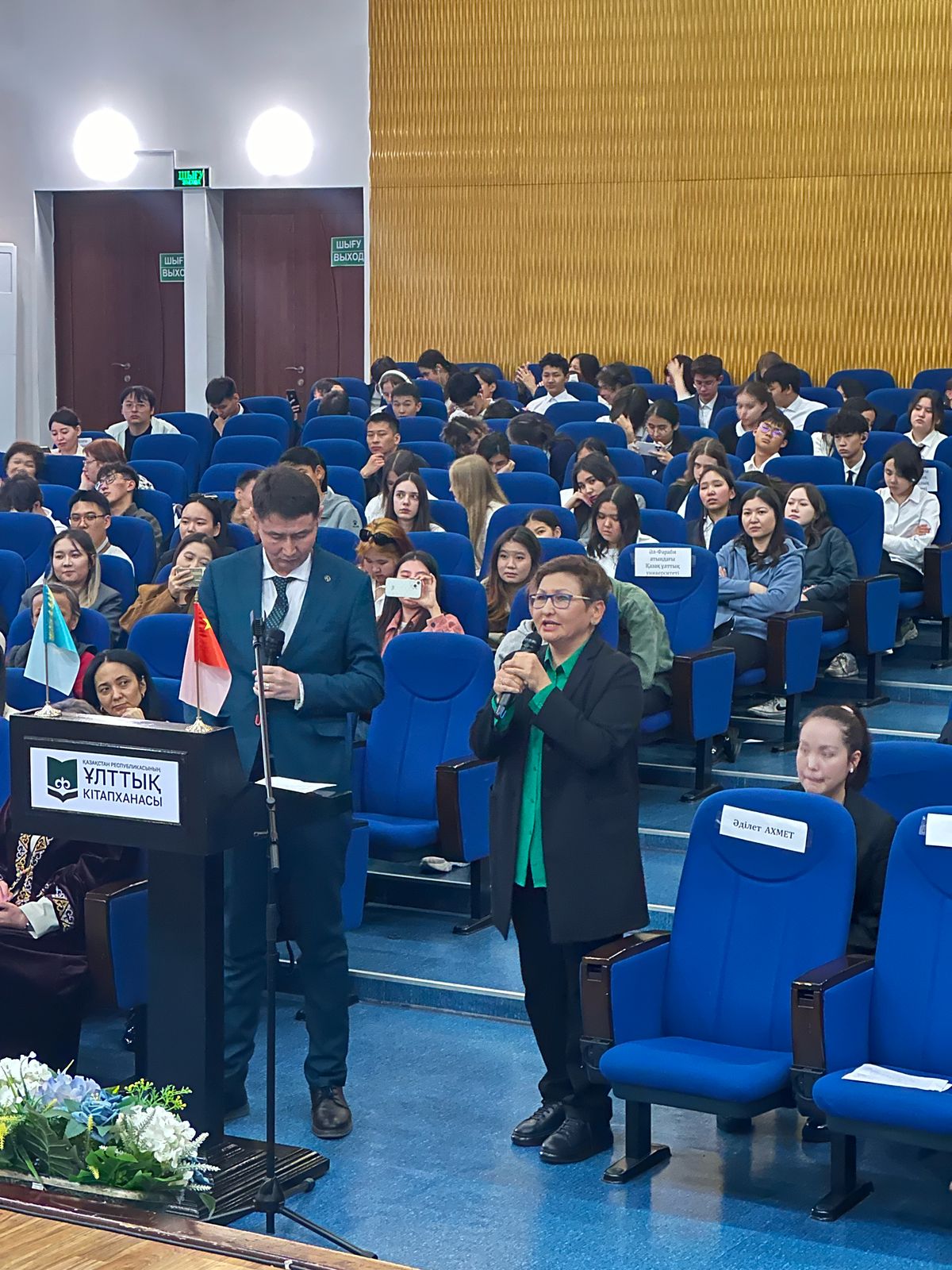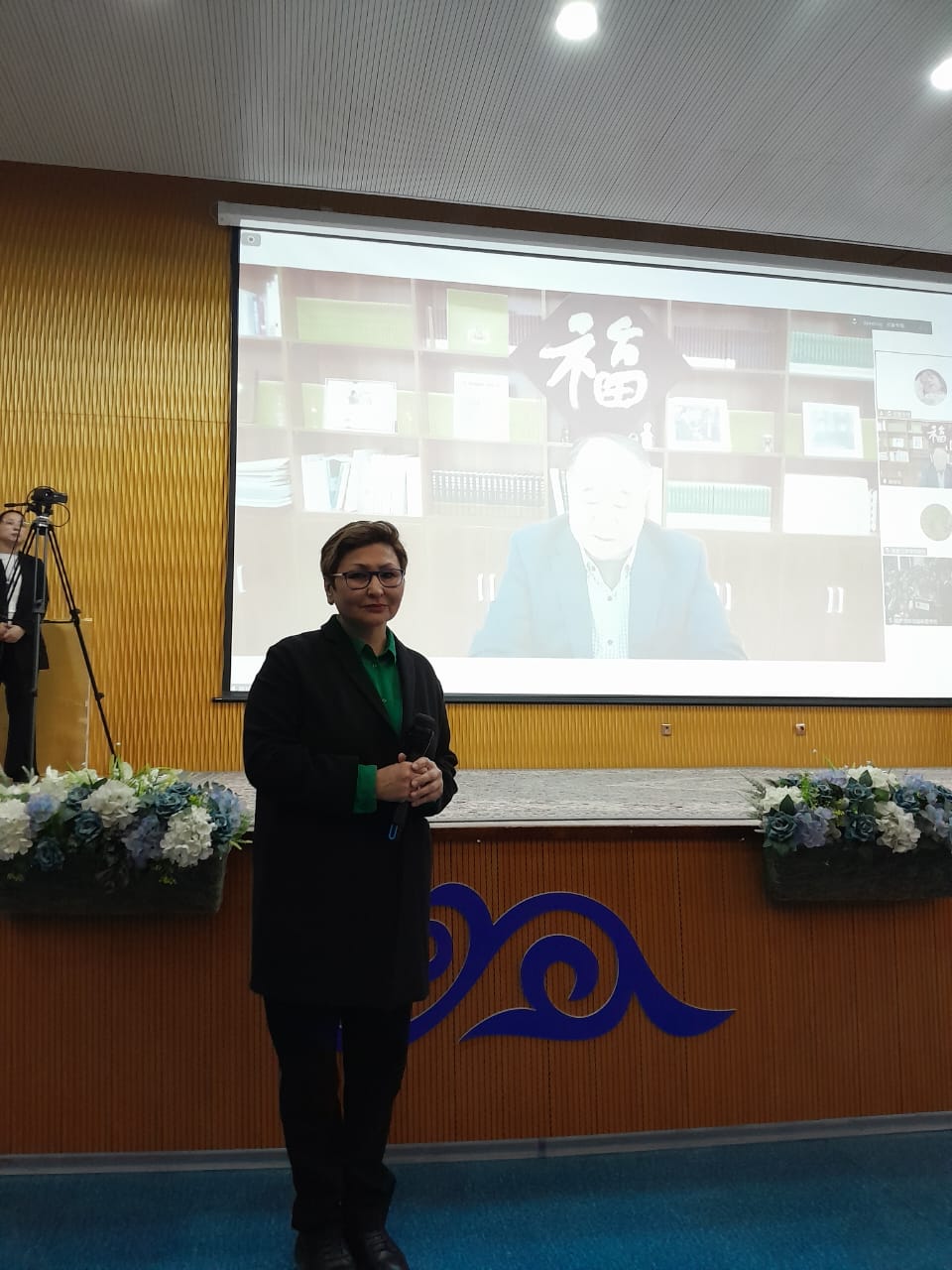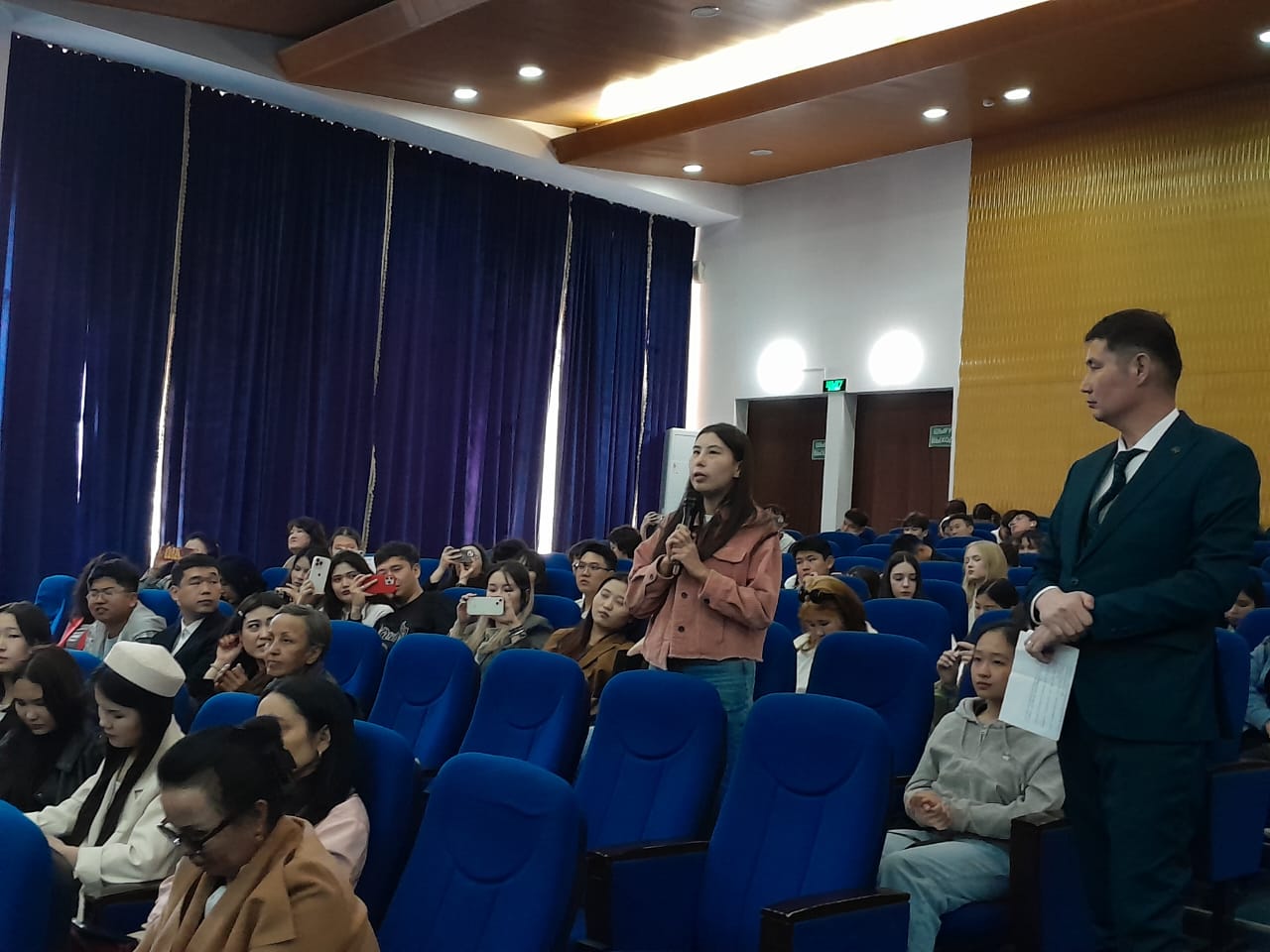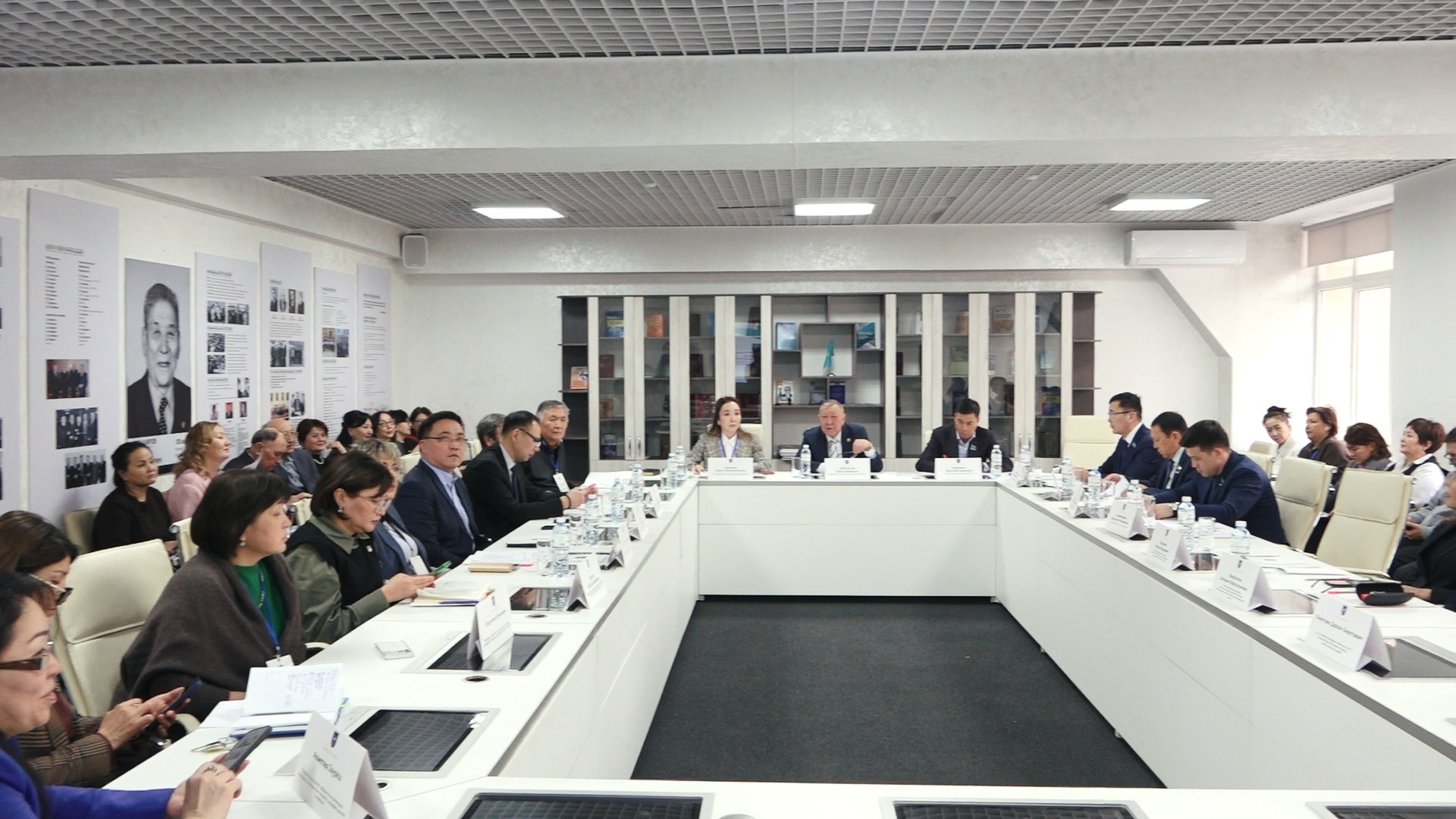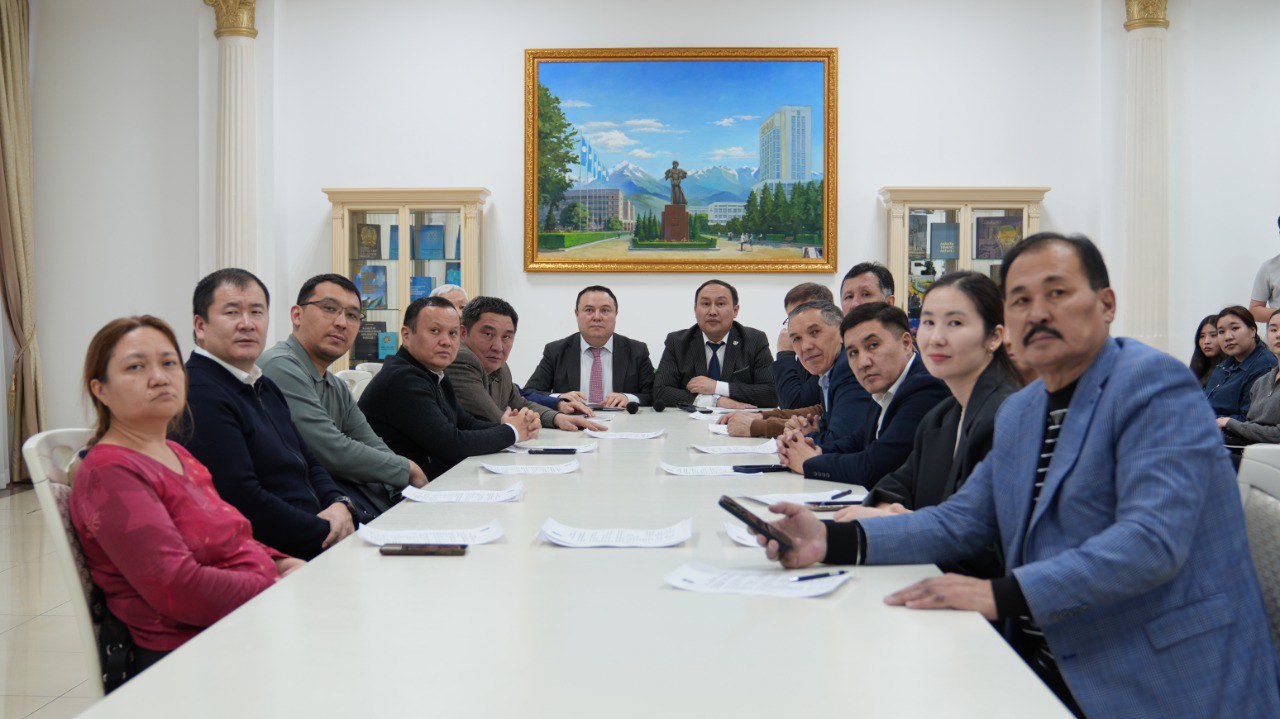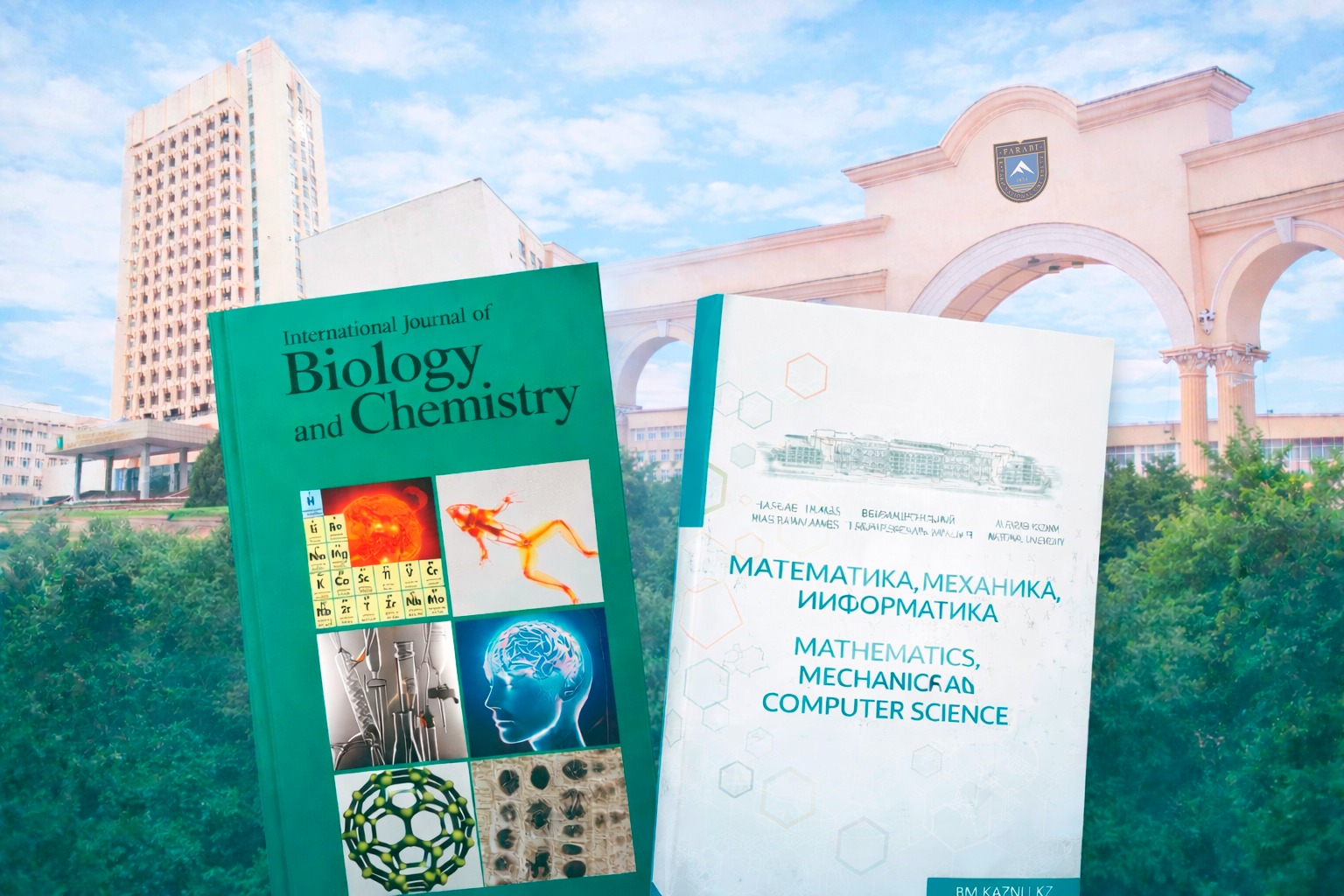Department of Chinese Studies Meets Nobel Laureate Mo Yan
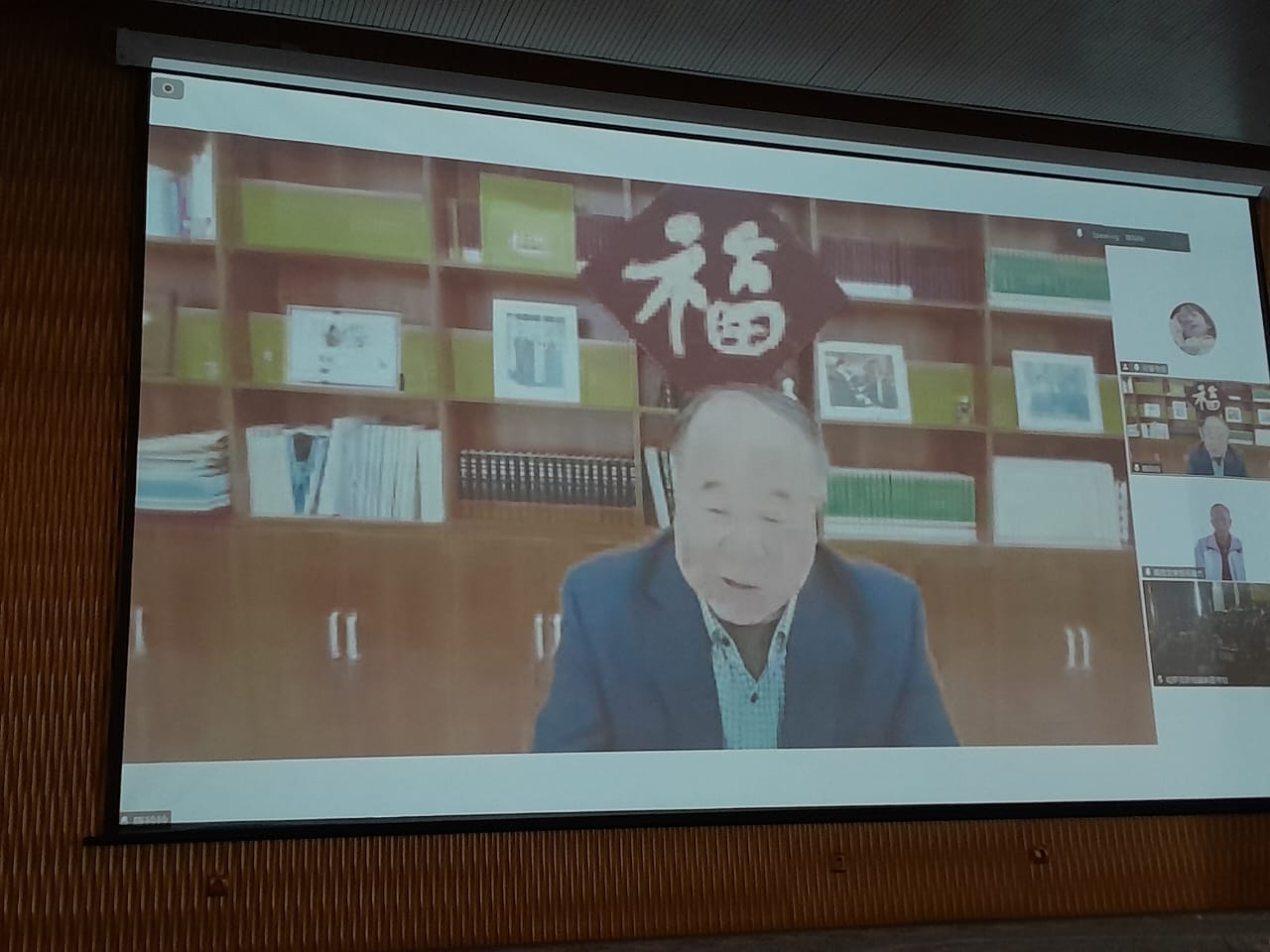
On April 23, 2025, a momentous meeting took place at the National Library of the Republic, where faculty members, master’s students, and doctoral candidates from the Department of Chinese Studies at the Faculty of Oriental Studies met with Nobel Prize-winning Chinese writer Mo Yan. This cultural event became a significant highlight in the university’s academic calendar, providing students and educators with a rare opportunity to engage in direct dialogue with one of the most influential voices in contemporary Chinese literature.
The meeting was organized by the National Library, which traditionally serves as a space for intercultural dialogue and a venue for meaningful intellectual exchange. Thanks to the efforts of the library and the support of the faculty and staff of the Department of Chinese Studies, participants were given a unique chance to hear firsthand about the personal journey, literary philosophy, and creative approach of this renowned author.
Mo Yan, whose works are internationally recognized for their rich fusion of magical realism, historical context, and folk narrative, spoke candidly about his development as a writer. He shared the story of his transformation from a village boy in Shandong Province to a globally acclaimed literary figure, and discussed the influence of classical Chinese authors such as Lu Xun and Wu Shunjie on his writing. Mo Yan emphasized his commitment to traditional themes while addressing contemporary issues that resonate with people across cultures.
A key focus of the meeting was the artistic distinctiveness of Mo Yan’s literary style. Professor Fatimabibi Nogaykyzy Daulet, who played a vital role in facilitating the participation of master’s and doctoral students specializing in Translation Studies, asked the author about the literary techniques he employs in his works. In particular, she was interested in how he consciously weaves elements of fantasy, satire, and folklore into a unified narrative structure, and how deliberately he constructs such multilayered storytelling.
In response, Mo Yan explained that for him, it is not enough to simply tell a story—he strives to create a unique atmosphere in which the reader feels personally involved. He noted that the use of folklore in his works is not decorative, but deeply symbolic, serving to immerse the reader in the national mentality, maintain a connection with ancestral roots, and interpret present realities through the lens of the past. “I write to connect time-past, present, and future-and to help people better understand themselves,” he said.
Another important part of the event was a question posed by Professor Daulet, who asked Mo Yan to share some words of guidance for Chinese students currently studying at the Faculty of Oriental Studies. In his thoughtful response, the writer stressed the importance of cultural dialogue and encouraged students to seek personal growth through the study of Kazakhstan’s spiritual culture. “Understanding another culture begins with respect for its history, literature, and traditions. When you study abroad, you are not only gaining new knowledge—you are also representing your homeland. Learn to be a bridge between cultures,” he emphasized.
Mo Yan also highlighted the essential role of language mastery for future translators. He pointed out that translation is far more than transferring words from one language to another—it involves a deep understanding of cultural codes, context, and hidden meanings. He encouraged students to be not only carriers of knowledge, but also explorers, interpreters, and creators of new cultural spaces.
Participants of the meeting noted that they left with not only valuable knowledge but also a sense of inspiration. The encounter was regarded as a milestone in the development of students’ professional competence and cultural awareness, reinforcing the importance of literature as a bridge between nations and generations.
